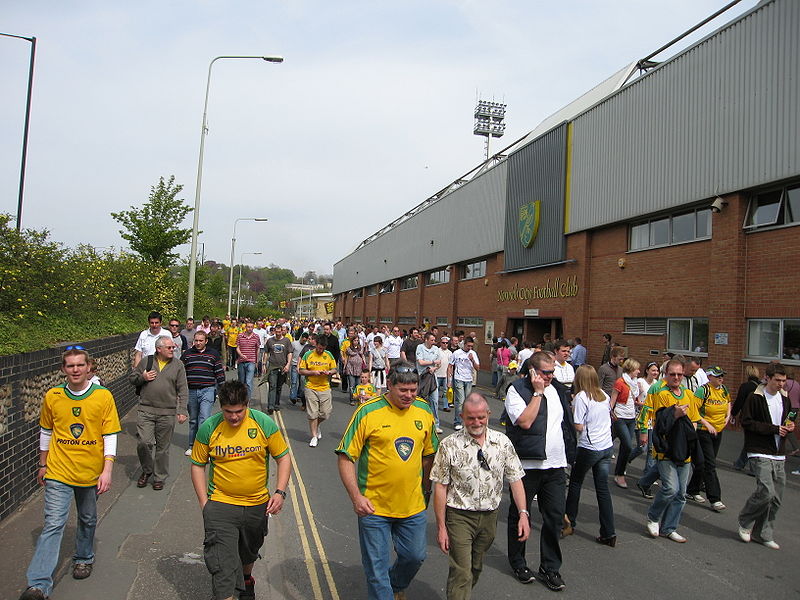The moment that the impact of Covid-19 was driven home, for me, was the halt of football. On the 13th March the Premier League announced a three-week suspension of the current football season, and this has since been upgraded to an indefinitely. To call football ever-present in the lives of its fans would be an understatement.Cold autumn and springs Tuesday and Wednesday nights are reserved for the Champions League, and Thursday for the Europa League if you’re a Manchester United fan. Weekends from noon to seven PM are set aside too. The majority of fans won’t stop at this however; they follow football on social media and in the news, they’ll discuss transfer rumours at the pub and the water cooler, and they’ll play online fantasy football. In short for approximately 23 million British people, football was a way of life. It was a unifier of the nation: Kieran Trippier’s free kick in July 2018, at the World Cup semi-final, was a moment for English people the world over a rare opportunity to celebrate their country (even if their celebrations were brief.) Football was a cornerstone of our society, and binds us in a way very little else does.
That is not to say that football is perfect. Far from it, and in some ways it seems to be getting worse. It is increasingly commercialised, increasingly tribal, and some would say there is far too much of it. Virgil Van Dijk, Liverpool’s star defender, made 46 appearances between August and the suspension, and likely would have ended up with 60+. It isn’t feasible to say that Covid-19 will solve all of football’s problems, but it does present a rare chance to reset the sport we love so much.
Upon suspension, there was confusion among the football community. In England, Liverpool and West Ham fans initially pursued the idea that the season could finish as it was (Liverpool would win the league, West Ham wouldn’t be relegated). Other fans, such as Aston Villa couldn’t accept this (Dean Smith’s side lay in the relegation places with one game in hand). Some of us are coping by watching clips of old games, sometimes even whole games where we knew the end result. The best of us went to watch the Belarusian league, which has astonishingly stayed open. The permutations of how the Premier League season will play out has slowly faded from view, as there is no easy solution. Slowly, if this lock-down drags into months, football may eventually become secondary for people. Our afternoons and weekends will be taken with other activities, new hobbies, and new passions. It will feel like a break-up, but just as with a break-up, we will get over it. And it is into that world that football will be reborn.
Here is how England can address the problems of pre-Covid19 football; The first is that fans can take football back from corporations. If fans the country over have figured out that there is a world beyond football, they’ll stop paying Sky Sports just to see Newcastle versus Southampton scheduled at six PM on a Monday, and perhaps away fans will stop accepting this sort of treatment too. This sort of rip-off is possible because of how beholden we are to this sport. In order to save it, and ensure stadiums maintain their atmosphere, we need to love football a little less, hard as that sounds.
Falling (slightly) out of love will also show us that maybe we need less games. There is mental and physical fatigue from the amount of football currently, and this affects both fans and players. Constantly having to choose between football and having a life isn’t easy. This, coupled with the injury-inducing quantity of games the players are forced to play, can be ruinous. We have done the unthinkable now, we have postponed everything. So why can we not change the League Cup? Why do we need 3 games in 5 days after Christmas? Why do we need more tournaments, like the International Champions Cup or a third tier European competition? Less can be more. We have a once in a generation(s) chance to rewrite what is “necessary” in our game. If we want to bring new fans into the game, people that are alienated by football, we need to reduce its complexity and inaccessibility, by reducing the number of games that must be followed to be a fan. Less will also mean more quality football being played, as there will be fewer injuries to first team players, and thus better spectacles on matchday. Less football will also decrease the inequality in football. One of the primary reasons Manchester City and Liverpool have dominated so thoroughly over the past three years is that they can both put out second string XI’s that are more than capable of winning at any level. No other team can do this, and so when the first XI is required, Manchester City and Liverpool are fresher than their opponents. Less football would help close the current inequality gaps in football’s “most competitive league.”
The benefits of postponement can go even further, and reduce tribalism in football. Hopefully, with a break, we will see how beautiful this game can be, how much we ALL miss the sport can then make us appreciate that it is worth taking in regardless of who you support: we are all mourning the loss of football, we have a lot more in common as football fans than we realise. In short, we can be fans of the game again, not fans of a team. We can take a break from bashing our rivals on Twitter, and just bask in the glory of this great game. Then, and only then, can we ensure that football is the unifier we all know it can be. Never before has every single football fan been in the same situation like we are today.
Image Rights: Mls11 via Wikimedia Commons

